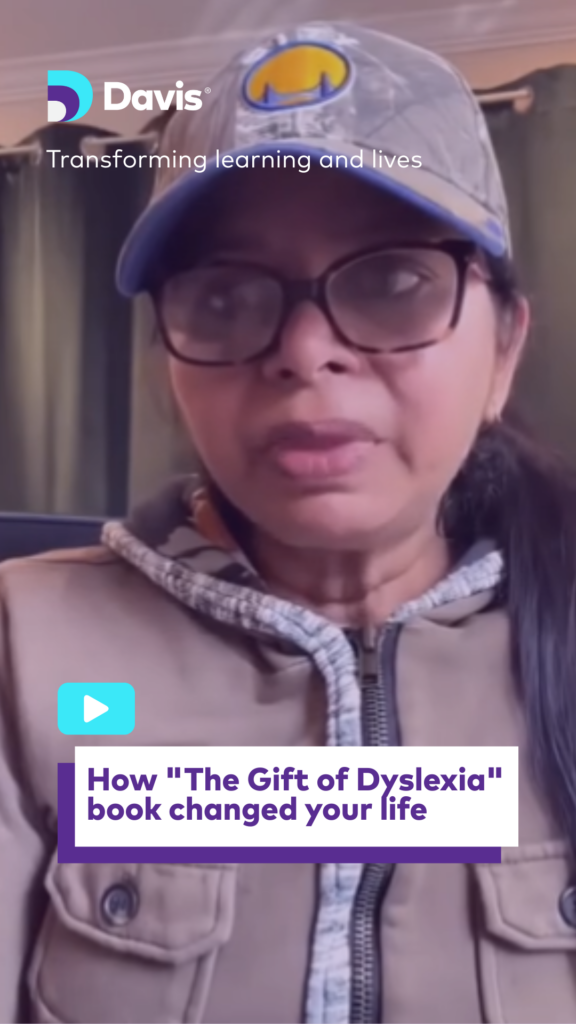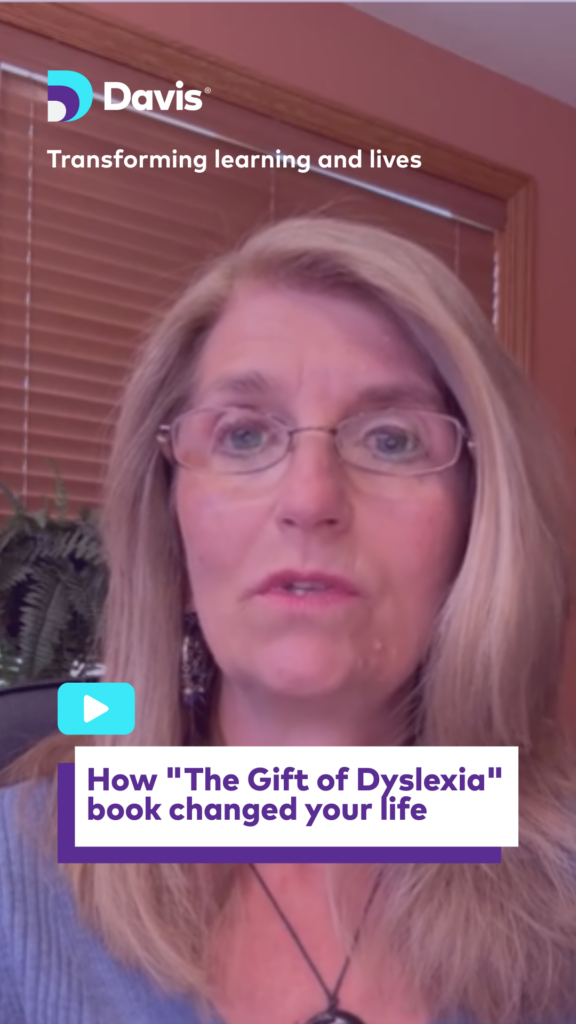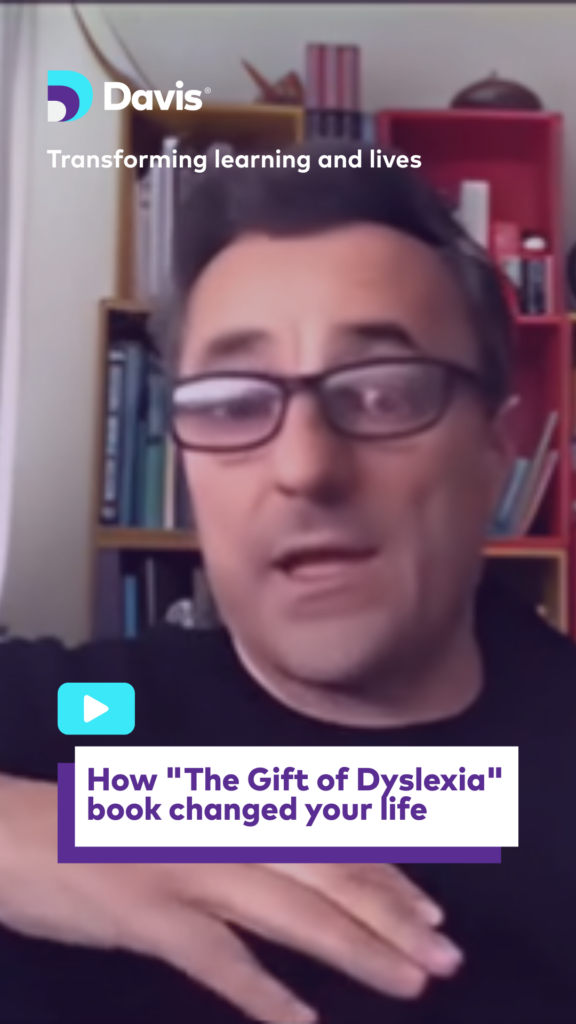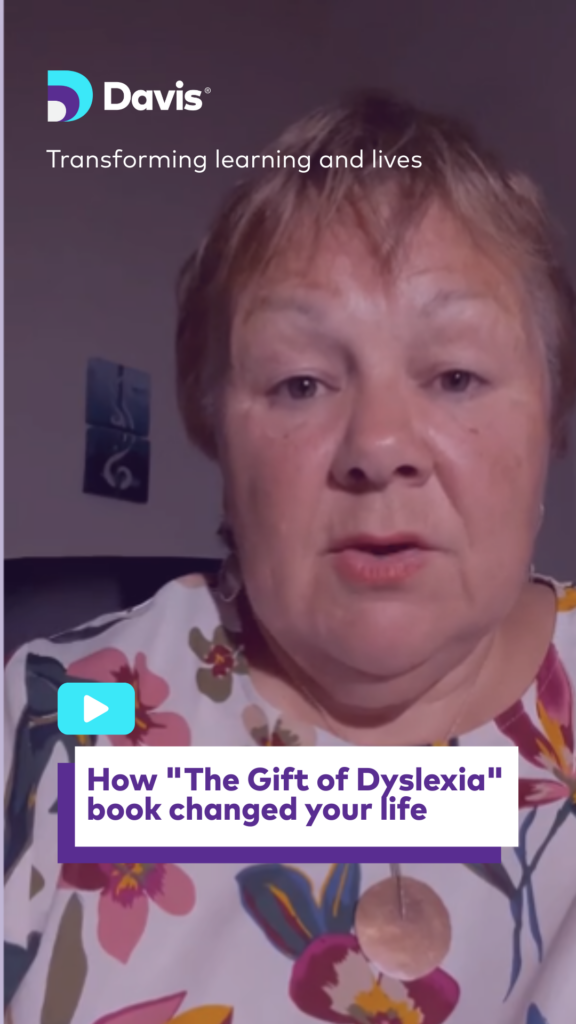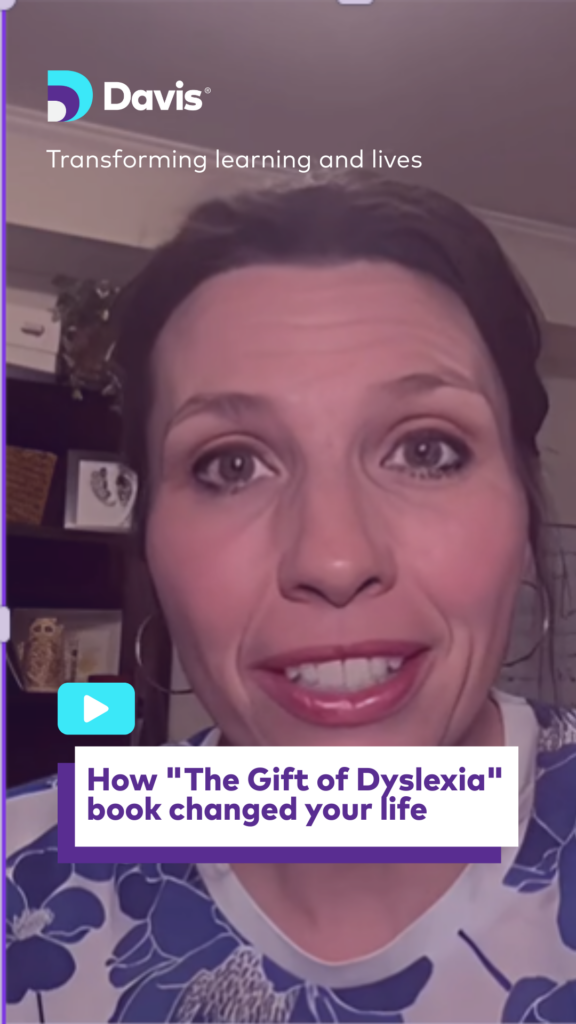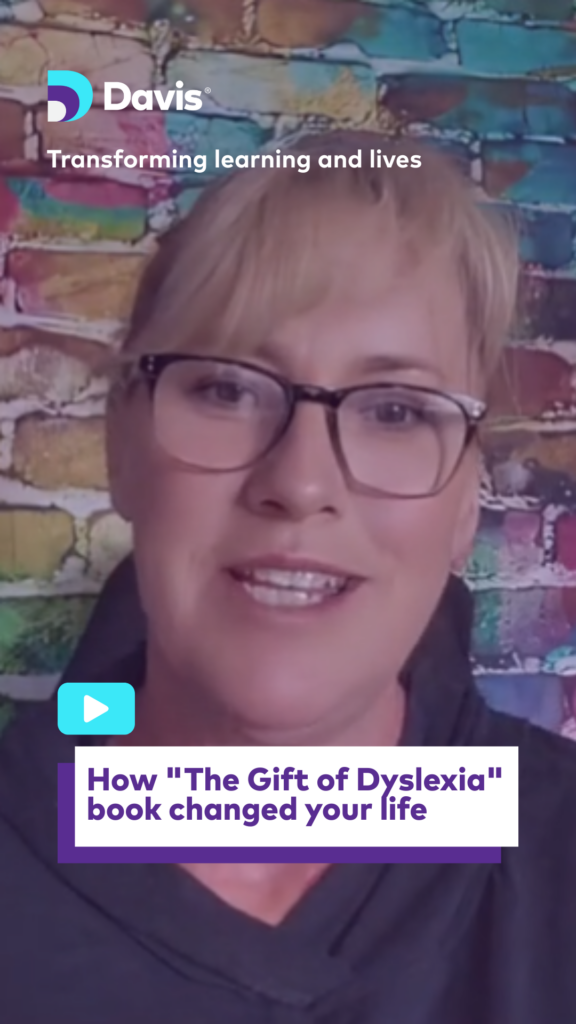Davis Solutions
Guest post by Stephen Martin – The Truth About Dyslexia Podcast, New Zealand.
If you’ve ever been told “you’re just not good at reading” or “you’d be fine if you tried harder,” buckle in. This new research might change how you see yourself forever.
Because what science is starting to say is this: dyslexia isn’t a mistake in your wiring. It might be a very old, deeply human feature.
The biggest genetic study yet
Researchers led by Hayley S. Mountford have published a massive study called “Multivariate genome wide association analysis of dyslexia and quantitative reading skill improves gene discovery.”
They looked at data from over 1.2 million people to understand how our DNA influences reading ability and dyslexia.
They found around 80 regions of DNA linked to reading and dyslexia traits, and 13 completely new ones that scientists had never seen before.
These genes were most active during early brain development, especially in areas tied to how we connect sounds, language and symbols.
That’s a big deal because it helps explain why dyslexic wiring shows up so early in life.

So what’s a “genetic risk score”?
The researchers used something called a polygenic index, or genetic risk score, to see how much these DNA patterns affect reading skills.
In simple terms, it’s like adding up lots of small differences across many genes to get a sense of how your brain might lean toward a dyslexic learning style.
But here’s what matters.
That genetic score only explains about 4 to 5 percent of the difference in how well people read.
That means the rest, more than 90 percent, comes from how you grow up, how you learn, and the environment around you.
Genes set the stage, but experience writes the story.
Dyslexia is old. Really old.
Here’s the part that blew my mind.
When scientists looked at ancient DNA, they found no sign that these genes have been selected for or against in the last 15,000 years.
In other words, humans didn’t evolve to get rid of dyslexic wiring.
That means it’s not a glitch that slipped through evolution’s filter.
It’s something that has been part of us for a very long time.
Maybe because it brings something valuable.
A different kind of brain
If you think about it, that makes sense.
Before reading and writing even existed, our survival didn’t depend on decoding letters. It depended on seeing patterns, solving problems, and thinking visually.
Those are the exact strengths many dyslexic brains have.
So maybe the issue isn’t your brain. Maybe the issue is that schools were built for one narrow way of learning, and we’ve mistaken difference for defect.
You don’t fail at reading because you’re not smart.
You struggle because you’re trying to run new software on ancient, brilliant hardware.
What this means for you
You’re not broken.
Your brain just builds meaning in a different way.
Yes, dyslexia has a genetic footprint. But it’s a small part of a much bigger picture that includes how we teach, how we support, and how we value different ways of thinking.
That’s hopeful. It means your brain can learn, adapt, and thrive when given the right tools, and that it was never meant to be judged by how fast you can read a paragraph.
So next time someone says dyslexia is a disadvantage, remind them it’s been part of humanity for at least 15,000 years.
If it was a mistake, evolution would have fixed it by now.
The takeaway
This new study gives scientific proof to what many of us already feel deep down.
Dyslexia isn’t a flaw. It’s one of the many ways the human brain has learned to understand the world.
You might read differently.
You might learn differently.
But you were never meant to fit someone else’s definition of “normal.”
You’re built for insight, imagination and resilience.
And now, even the DNA agrees.
Get the right tools for YOUR thinking style
Understanding your dyslexic wiring as an ancient adaptation—not a flaw—is the first step toward working with it instead of against it. The Davis® Mastery for Dyslexia program applies this strength-based thinking through proven methods designed for picture thinkers. It addresses the root causes of dyslexia by teaching you to control perceptual disorientation and master the symbols and words that trigger confusion, so your natural abilities work for you instead of against you. Whether you have a dyslexia diagnosis, suspect you might have dyslexia, or are exploring whether Davis methods could help with other learning challenges, a licensed facilitator can work with you.
Find a facilitator near you, or contact us to discuss your specific needs.
References
Mountford, H. S. et al. (2025). Multivariate genome wide association analysis of dyslexia and quantitative reading skill improves gene discovery. Translational Psychiatry (Nature Publishing Group).
Available at: https://www.nature.com/articles/s41398-025-03514-0
Press summary via Medical Xpress.
About the author
Stephen Martin, based in New Zealand, is the creator of The Truth About Dyslexia podcast, with nearly a million downloads worldwide. Diagnosed with dyslexia as a child and ADHD as an adult, Stephen shares raw, real stories about the neurodiverse journey and what it takes to thrive.
He has worked with the Davis Method himself and is passionate about showing adults that dyslexia, ADHD, and autism are not just challenges, but part of a powerful mix of strengths.
Learn more about his dyslexia in adults podcast here or help him with his ADHD Sleep project survey if you have ADHD.
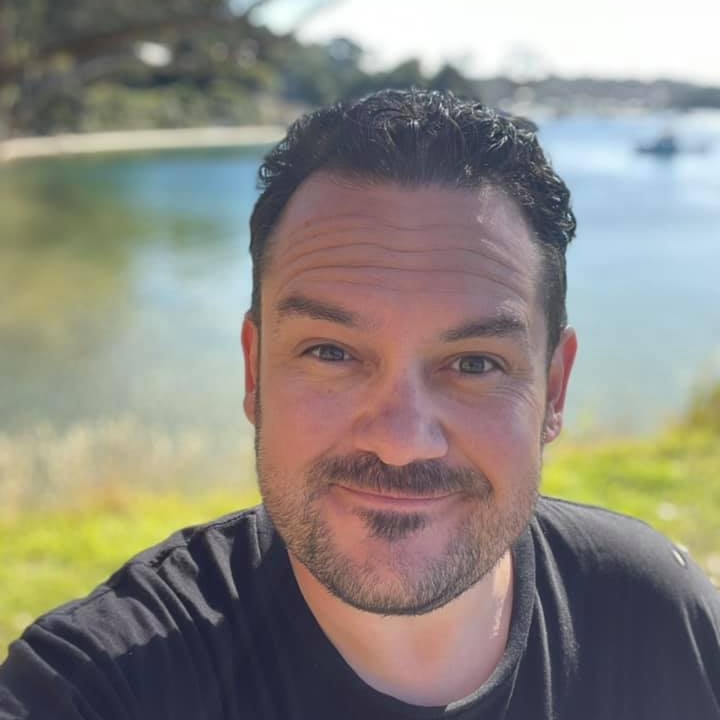
At just 12 years old, T.R. faced a reality that many children with dyslexia know all too well: “I’m 12 and I don’t even know how to write.” His teachers would send him to the hallway to “think about it,” leaving him feeling isolated and frustrated. But T.R.’s story is a powerful testament to how the right approach can transform a child’s entire relationship with learning.
The Struggle: When Traditional Methods Fall Short
Before discovering Davis dyslexia programs, T.R.’s educational experience was marked by confusion and discouragement. His writing looked like “a bunch of blob letters,” his G’s appeared backwards, and traditional paper-and-pencil learning methods weren’t helping him advance at all. Like many children with dyslexia, T.R. possessed incredible creativity and intelligence, but the conventional classroom approach couldn’t unlock his potential.
“They would just like sort of put me out in the hallway and say, ‘you’ll think about it, T.R.,'” he recalls. This isolation is unfortunately common for children struggling with learning differences, often leading to decreased confidence and motivation. But T.R.’s natural artistic abilities, his love for Lego, clay, and drawing, would soon become the key to his transformation.
The Davis Difference: Hands-On Learning That Works
What makes dyslexia help through the Davis approach so effective is its recognition that children like T.R. aren’t broken, they’re wired differently. The program tapped into T.R.’s existing strengths, particularly his visual and tactile learning preferences. “I really like doing the program because it let me really interact with the skills that I already had,” T.R. explains.
The Davis Mastery for Dyslexia program uses clay modeling to help students understand sight words in a three-dimensional, experiential way. For T.R., this method was “up my alley already” because it combined his love of building and creating with essential literacy skills. Instead of staring at flat letters on paper, he could sculpt, touch, and manipulate words until they made sense.
Creative Breakthroughs: When Learning Becomes Art
One of T.R.’s favorite clay models was the word “else,” which allowed him to “combine two worlds together” by creating an alien talking to itself about people from “another place.” This creative interpretation demonstrates how the Davis approach encourages students to use their imagination as a learning tool rather than suppressing it.
T.R.’s description of his “dials”, his mental focus tools, shows his sophisticated understanding of attention control. He compares them to “Tesla thingamabobbers… like that blue glowing futuristic thing,” illustrating how he can now visualize and control his focus in ways that make sense to his creative mind.
Remarkable Results: From Blob Letters to Clean Writing
T.R is now is now a confident learner, “I barely make any mistakes now,” he proudly shares. His handwriting evolved from illegible “blob letters” to “clean letters” that aren’t scattered everywhere. His backwards G’s are a thing of the past, and he’s developed remarkable speed and accuracy in his work.
Perhaps most importantly, T.R. has learned to overcome creative blocks, what he calls “word blocks”, by developing strategies like asking family members for ideas and combining concepts to spark his own creativity. This problem-solving approach extends far beyond just writing, giving him tools he can use throughout his life.
Practical Wisdom: Tips from a Young Expert
T.R. offers valuable advice for other children facing similar challenges: “If you have patience, you can do anything.” He’s discovered that consistent daily practice with clay words builds both speed and confidence, with some easier words taking him just two minutes to complete.
His self-motivation strategies are equally impressive. Rather than relying solely on external rewards, T.R. treats himself for completed work, whether that’s drawing time or other activities he enjoys. This internal motivation is crucial for long-term success and confidence building.
A Message of Hope for Families
T.R.’s journey from educational isolation to confident learning offers hope for families seeking effective dyslexia help. His advice to parents considering the program is clear: “If you’re doing this at a younger age, this is really useful. So you won’t really end up like suffering.”
The Davis dyslexia programs teach more than reading and writing, they teach you how to leverage natural strengths and creativity. For visual, hands-on learners like T.R., this approach can mean the difference between educational struggle and genuine academic confidence.
As T.R.’s story shows, with the right support and methods, children with dyslexia can transform their perceived weaknesses into genuine superpowers. The key is finding an approach that honors how they naturally learn and think.
Take the next step today:
- Find a Licensed Davis Facilitator in your area – Our experienced professionals provide personalized, one-on-one support tailored to your child’s specific needs
- Contact us directly to learn more about the Davis Mastery for Dyslexia program and how it can help your child
Don’t let your child struggle in silence like T.R. did. With the right support, they too can go from “blob letters” to confident writing, from educational isolation to academic success. Contact us today to begin your child’s transformation journey.
Guest post by Stephen Martin
About Stephen:
Stephen Martin is a leading voice in the adult dyslexia and ADHD space, best known as the host of The Truth About Dyslexia podcast — a raw, real, and relatable show that’s reached over 1 million downloads. Diagnosed with dyslexia as a child, Stephen now uses his lived experience and deep curiosity to empower neurodivergent adults through coaching, storytelling, and practical tools that actually work. He’s the founder of Truth About Dyslexia Coaching, where he helps adults shift from confusion to clarity using strategies tailored to the dyslexic mind.

My Davis Dyslexia Experience as an Adult
Hey there, I’m Stephen Martin, host of The Truth About Dyslexia podcast. If you’ve found this page while looking for real answers about dyslexia in adults or searching for an adult dyslexia podcast that actually speaks your language, you’re in the right place.
Today, I want to talk about something that changed the way I see myself and how my brain actually works — the Davis Mastery for Dyslexia Program. But before we get into the nuts and bolts of the course, I want to share how I even got to the point of needing it.
Diagnosed Young… Then Forgot About It
I was diagnosed with dyslexia at age 10. I was in a private school at the time, and to be honest, I was lucky. Dyslexia wasn’t officially recognised in New Zealand’s school system until around 2007. So to be picked up in the mid-90s was rare.
My mum was my absolute hero. Like many mums of dyslexic kids, she fought tooth and nail for me. She helped me get a Reader/Writer for high school exams, which, around 2000, was pretty rare, and that gave me a real leg-up.
But once I left school, I did what so many of us do. I put dyslexia in a box and shoved it under the bed. I figured if I just worked harder, pushed myself enough, and stayed positive, I’d be fine. Turns out, that’s not quite how it works.
A Pub Chat That Changed Everything
I was about 32 when my dad brought it up again. We were at the pub, having a beer, and he asked, “Do you think your dyslexia might be behind some of the stuff you’re struggling with in life?”
I did what any proud adult (and smart arse son) would do – I ignored him. Multiple times.
But he didn’t let up. Eventually, he found a Davis Dyslexia practitioner who lived walking distance from my house. That kind of luck doesn’t happen often. He kept at me until I messaged her.
It took five text follow-ups from her before I responded. Like many dyslexics, I was stuck in the fog. But eventually, I got myself to her house for an initial consultation.
That’s when everything shifted.
The Builder That Didn’t Exist
During our session, she noticed my eyes drift off and asked what I was thinking about. I told her I was picturing the builder hammering on her deck outside.
She asked, “Have you ever seen my deck? Or met my builder?”
I said no.
She smiled and explained that I had just created an entire scene in my head, a detailed, vivid, and completely made-up experience and believed it was real.
That moment hit hard. It made me realise just how often I’d trusted mental stories that weren’t rooted in anything real. Stories about myself. About others. About the world.
That was the hook. I was in.

The Davis Concepts for Life
When I first heard about the Life Concepts course, I was more than happy to invest in myself. And honestly, it was worth every cent.
The amount of one-on-one time you get with a facilitator is incredible. And once you get over the fact that you’re learning using clay-yes, actual clay, the depth of what you uncover is profound. It feels childlike at first, but it unlocks things that traditional education never came close to.
I worked with a fantastic facilitator named Vanessa Victor, and I honestly can’t thank her enough. She made me feel seen, respected, and supported throughout the whole process. And I know there are other amazing Davis facilitators out there who care deeply about every client they work with, whether child or adult.
The course itself uses real-life examples and practical application to teach you how to internalise core concepts that so many of us missed growing up. Things like time. Sequence. Cause and effect. Responsibility.
It sounds obvious, but it’s not. Just because you can say the word “consequence” or nod when someone talks about “cause and effect” doesn’t mean you’ve actually embodied what it means. And that’s the magic of this course.
It was like filling in invisible gaps in my foundations, the kind of knowledge you didn’t even know you were missing until someone pointed a light at it.
I can’t do justice to what happens in that room with clay and a brilliant facilitator. But I can tell you it felt like rewiring parts of my brain that had been running on guesswork for years.
What Changed for Me
After going through Davis, I began to:
- Understand how I process information (and why that matters).
- Spot the stories I was creating in my mind that weren’t actually true.
- Feel more grounded, like my internal compass finally had a north.
- Let go of the shame of not “getting” things others seemed to know automatically.
But most of all, I stopped trying to fix myself and started learning how to work with my brain instead of against it.
If You’re An Adult With Dyslexia…
Let me be straight with you: you’re not broken. You’re not lazy. And you’re definitely not alone. Whether you were diagnosed at school or only recently started wondering about it, the Davis approach is one of the most empowering things I’ve ever done, especially for adults who are ready to make sense of the messy, often overwhelming parts of life that never quite clicked.
If you’re looking for a safe place to keep exploring this stuff, come check out my podcast, The Truth About Dyslexia. It’s raw. It’s honest. And it’s made for people who think in pictures and feel like school never really taught them the tools they needed
Looking to explore more about dyslexia in adults?
Start listening to Stephen’s Podcast: The Truth About Dyslexia, or visit his website for core resource page for adult dyslexia for practical support and real stories.
Inspired by Stephen’s story?
If you’re an adult looking for support, you can find a Davis Facilitator near you and explore how the Davis Concepts for Life® program or Davis Mastery for Dyslexia program could help you or someone you care about.
Or, if you’d like to guide someone through the program yourself — and even take the first step toward becoming a Licensed Davis Facilitator — join an upcoming Concepts for Life Workshop or upcoming Gift of Dyslexia Workshop to gain the tools and training to make a real difference.
Got questions?
Contact us
Celebrating three decades of turning learning struggles into lifelong gifts
The Discovery That Changed Everything
Thirty years ago, Ron Davis published a book that changed how the world understands dyslexia.
What started as one man’s journey from 38 years of illiteracy became a global movement. This movement has helped millions of people across more than 40 countries.
The Gift of Dyslexia revealed what others failed to see: dyslexia isn’t a disability. It’s a different way of thinking. When you understand it properly, it becomes an extraordinary gift.
Today, our services reach over 30 languages worldwide. Our research-backed methods have helped countless people discover their true potential.
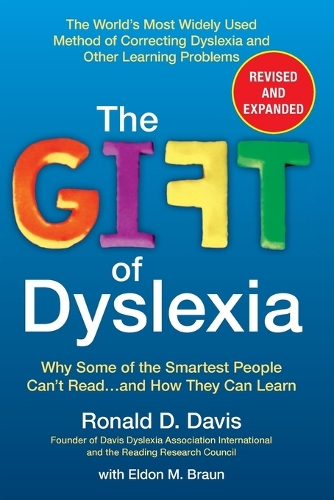
Ron Davis: From Struggle to Breakthrough
Ron Davis was born with what we now call severe autism. Doctors labeled him “uneducable and mentally retarded.”
For the first nine years of his life, he had no awareness of the world around him.
When awareness came, it brought terror. He suddenly had to learn in a system that wasn’t designed for minds like his.
The turning point came at age 17.
An IQ test revealed Ron was a genius. He scored 137 points.
By age 27, after using clay modeling to learn concepts and words, his IQ reached 169.
But reading remained impossible.
Words swam on pages. Letters flipped and rotated. Spacing disappeared.
The breakthrough came during his career as a sculptor. He realized he could “go” to a place where language didn’t exist.
If he could go there, perhaps he could go where language did exist.
That curiosity led to his discovery of the root cause of dyslexia: disorientation.
Once Ron understood this, he could read without effort for the first time in his life.
The words held still. The spacing was accurate. He experienced what everyone else experienced when looking at text. You can read Ron’s full story here
Real Stories of Change
For 30 years, The Gift of Dyslexia has created “finally, somebody understands” moments for families worldwide.
Here are stories from people whose lives changed:
Cheryl Rodriguez – twenty years of dedication
Cheryl treasures her signed copy of The Gift of Dyslexia – “one of my most prized books.” As a Davis Facilitator for almost 20 years, she’s witnessed the book’s enduring power firsthand. “It not only changed the direction my life and career took, but it has also helped me in being able to change the lives of numerous people because of it.” What makes it so lasting? “Its simplicity, clarity and the fact that it gives hope.” After two decades of helping others, Cheryl’s verdict: “The scope of the gift of dyslexia is indeed immense and it will continue to help and inspire people for years to come.”
Anne Mataczynski – from desperate parent to life-changing facilitator
Anne trained to be a reading teacher. Every university strategy she tried with her brilliant son, who was struggling with reading, failed.
When she discovered The Gift of Dyslexia, her son’sresponse changed everything: “Of course we think in pictures, don’t you Mom?”
Within months of implementing the Gift of Dyslexia, her son was reading at grade level.
Today, he’s a college graduate running successful businesses. Anne has been a Davis Facilitator since 2006.
“I knew then and there that had to be my career path to help other individuals overcome some of the struggles they were having with reading.”
Carl Nigi – from lifelong struggle to purpose
Carl spent his entire life “chasing his dyslexia” as a severely dyslexic adult. When he discovered Ron Davis’s work, everything changed. He realized dyslexia isn’t what we think it is. It’s “something really very good, very positive that just needs a different approach.”
“I couldn’t stand by and let a child of eight, nine, ten have the same experience that I have had as a dyslexic learning to read.”
Now Carl is a Davis Facilitator. He ensures no child has to struggle the way he did.
Margot Young – beyond reading: life change
Margot’s story shows how Davis tools extend far beyond literacy.
Before the program Margot:
Had no control over her temper
– Constantly bumped into things
– Dropped items regularly
– Even backed her car into letterboxes
Using Davis self-regulation techniques, she can now:
– Control her anger
– Stay alert and focused
– Manage her energy levels
– Truly relax
The Davis tools keep her “in the here and now.” They changed how she moves through the world.
Emily Nielsen – a mother’s library search leads to a career change
When Emily’s kindergartener couldn’t learn to read and repeated the grade, she acted.
She went to the library and checked out every book on dyslexia she could find. Reading The Gift of Dyslexia, she cried. “Finally, there is somebody out there that understands my son.”
That struggling five-year-old is now 22. If you heard him read, you’d never know he was dyslexic.
Emily became a Davis Facilitator five years ago. She witnessed what she calls “the magic of this program.”
“We know it’s not magic, but it works like magic.”
Nadine Shumont- university success after years of struggle
Nadine was diagnosed with dyslexia and ADHD as an adult. She struggled through university in her 40s. She’d used every available resource. Nothing worked. Ready to drop out, she discovered The Gift of Dyslexia audiobook as a last resort.
“It changed my world.”
She completed her degree. She became a Davis Facilitator to “give back and pay it forward to everybody else who’s neurodiverse like me.”
Your Change Starts Here
Ready to discover how The Gift of Dyslexia can change your life or your loved one’s life?
You have several pathways:
Join our next Gift of Dyslexia Workshop – July 14-18, 2025
Perfect for:
Parents and grandparents seeking to understand and support dyslexic family members
Adults with dyslexia looking to understand their own learning style
Professionals considering a meaningful career change to become Davis Facilitators
What You’ll Receive:
- Complete understanding of dyslexic thinking and the Davis approach
- Practical tools and techniques you can use immediately
- Professional certificates and all materials
- Ongoing support
- Pathway to Davis Facilitator training (if desired)
Investment: $1,595 USD
Format: Online (US/Canada time zones)
Work One-on-One with a Certified Davis Facilitator
If you prefer personalized, individual support for yourself or your child, our licensed facilitators provide the complete Davis Mastery for Dyslexia program through one-on-one sessions.
Get the Book that started it all
Own your copy of the international bestseller that has been translated into 20 languages and changed millions of lives.
The Gift of Dyslexia – Available in:
Paperback: $19.99 USD
Audiobook: $19.99 USD
Available in 20 languages
Join the Global Community
Connect with thousands of families, adults, and professionals who understand the dyslexic experience:
- Newsletter: Get regular insights, success stories, and hear about our latest events. Register here
- Join our closed Facebook Group: providing support and information for parents, teachers, and neurodivergent individuals who are using Davis methods or who want to learn more about our approach.
- Social Media: Follow our communities on Facebook, Instagram, LinkedIn, YouTube and BlueSky
- Testimonials: Read more stories on our news page
- Have questions? Contact us
When you or a loved one have just been diagnosed with autism, it can feel like entering uncharted territory. The diagnosis might bring relief, confusion, or a mix of both. You may be thinking “Now where do I find autism help?” or “Does this autism diagnosis help me in anyway?”
But beyond the label lies a journey of understanding, connection, and unlocking potential.
The reality of just being diagnosed with autism
Receiving an autism diagnosis often brings a cascade of emotions. For many, it provides answers to long-standing questions about why they experience the world differently. For others, especially adults who’ve spent years masking or adapting, it can be the reason that finally helps make sense of their life experiences.
Often, the journey to diagnosis is lengthy, leading to relief when long time suspicions are confirmed. This can quickly be replaced with feeling lost – now what? Depending on support needs, it may be time to start seeking support or finding accommodations that can help an individual thrive.
As Melanie Curry, Director of Davis Autism International, explained in a recent webinar on “The Importance of Life Concepts” often the Davis Autism Approach is discovered when many other avenues have been exhausted – something Davis Autism International is wanting to change.
“We are not about attempting to turn an autistic person into a non-autistic person. We simply want to help the individual overcome any struggles they might have and empower them to fully participate in the life that they choose,” says Melanie.
“Many families come to us feeling frustrated after trying numerous therapies without seeing meaningful progress,” Melanie adds. “What makes our approach different is that we start by understanding autism from the inside out, rather than imposing external expectations.”
This perspective is crucial – autism isn’t something to be “cured” but rather understood as a different way of experiencing and interacting with the world.
The Davis Autism Approach emerged from the mind of an autistic individual on the understanding that autistic people often experience overwhelm from the emotions and energy of those around them. Through tools like Auditory Orientation (the “Davis Ting”), Release, and Dial, the program helps autistic individuals develop accurate perceptions and regulate their focus, stress, and energy levels. These methods weren’t developed through external observation—they emerged from Ron Davis’ lived experience of what works for an autistic mind. Read how Ron created the Davis Method here.
“What makes Ron’s approach revolutionary,” Melanie explains, “is that it wasn’t developed by neurotypical researchers observing autistic behaviors from the outside. It came from Ron’s direct experience of what it means to be autistic and what actually helps an autistic mind function optimally in a world that isn’t designed for it.”
Ready to transform understanding into empowerment? Our Davis Autism Approach workshops provide practical tools for navigating life after diagnosis.
"Many families come to us feeling frustrated after trying numerous therapies without seeing meaningful progress. What makes our approach different is that we start by understanding autism from the inside out, rather than imposing external expectations."
Bridging the neurodivergent and neurotypical worlds
One of the key challenges after an autism diagnosis is recognizing the different ways autistic and non-autistic minds experience the same reality. It’s like two people standing in the same room, seeing entirely different worlds.
“What transforms lives in our work,” Melanie shares “is creating those moments when understanding flows both ways. When a parent suddenly glimpses the world through their child’s perspective, or when an autistic person recognizes why certain social interactions have always felt like navigating a foreign country without a map—those are the moments when real connection begins.”
This divide isn’t just conceptual because it creates real pain. The isolation many autistic individuals experience is devastating, with research showing they’re four times more likely to be socially isolated. A heartbreaking 80% report experiencing loneliness or depression, and they face five times the risk of suicidal thoughts.
Behind these statistics are real people longing to be understood, to find their place in a world that often feels designed for someone else.

When Life Concepts are fuzzy
Many individuals just diagnosed with autism struggle with executive function – the cognitive processes that help us plan, focus, remember instructions, juggle multiple tasks, and regulate emotions. These challenges aren’t always immediately obvious, but can significantly impact daily life.
Executive function difficulties occur when life concepts aren’t fully understood. Melanie explains, “Understanding these ideas can be challenging because they are often not concrete or visible. Concepts like ‘consequence’ or ‘time’ are not tangible. They cannot be touched or seen. This makes them harder to grasp.”
“In our work with autistic individuals,” Melanie continues, “we’ve observed that when these abstract concepts become clear and concrete, many of the anxiety-producing challenges simply dissolve. It’s not about teaching someone to behave differently—it’s about helping them understand their world in a way that makes sense to them.”
(We have a whole blog post on these life concepts here or watch our webinar on the Importance of Life Concepts here)
When these life concepts aren’t concrete, it may manifest as:
- Trouble organizing thoughts and activities
- Difficulty shifting from one task to another
- Challenges with time management and sequencing
- Overwhelming feelings when faced with unexpected changes
These challenges aren’t due to a lack of intelligence or willingness – they reflect differences in how the autistic brain processes information and experiences the world.
Making abstract concepts concrete
The Davis Autism Approach offers a unique perspective on supporting autistic individuals. Rather than trying to “fix” autism, it focuses on making abstract concepts concrete and understandable, thereby reducing anxiety and confusion.
“What we’ve found,” Melanie shares, “is that when we make these abstract concepts tangible through clay modelling and experiential learning, we see remarkable transformations. An individual who couldn’t handle change suddenly develops flexibility. Someone who struggled with time management begins to understand sequences and planning.”
Three particularly important concepts include:
Responsibility
Responsibility involves ability, motivation, and control. Responsibility does not happen if you have motivation, but do not have the ability to control (cause change). Similarly, you will not end up taking responsibility if motivation is lacking.For neurodivergent individuals, responsibility can feel overwhelming. They may take on too much or avoid it altogether.
When responsibility is unclear, individuals may:
- Refuse certain tasks
- Blame others for mistakes
- Take on too much
- Struggle with boundaries
When responsibility is mastered and internalized, we see individuals who:
- Own appropriate responsibilities
- Set stronger boundaries
- Work well both independently and in groups
- Maintain healthier relationships

Change
Change happens constantly around us, but when this concept isn’t clear, it can cause:
- Discomfort with new experiences
- Reluctance to try new things
- Inflexibility and need for control
- Specific anxieties around certain triggers
Making change concrete helps individuals recognize it as a natural part of life, reducing fears and building adaptability.
Time
Understanding time is about more than reading a clock – it’s about grasping how time relates to change and sequencing. When time is a fuzzy concept, it leads to:
- Inability to estimate how long activities will take
- Anxiety about being late or having to wait
- Difficulty planning and prioritizing
- Challenges with understanding cause and effect
By experiencing time concretely, these anxieties can diminish significantly.
Experience how the Davis Autism Approach makes abstract concepts concrete in our hands-on workshops. Participants report reduced anxiety and increased confidence within weeks. See workshop details →
How to navigate a non-autistic world
If you or someone you love has just been diagnosed with autism, remember that the diagnosis is just the beginning of understanding, not the end. The goal isn’t to make autistic individuals less autistic, but to give them tools to navigate a predominantly non-autistic world with less anxiety and more confidence.
As Richard Whitehead, Director of Davis UK and Ireland, shared about a young Davis Autism Approach client:
“What I’m now hearing from the family is that she’s now coming home very happy, very confident each day. She has started performing on stage… It’s just this sort of domino effect that occurs when these pieces get put into place. Then a person starts to feel more in control of their life.”
Stories like these aren’t rare—they’re what we see regularly with our transformational workshops and programs. You can read Sam’s story, Albert’s story or Logan and Elises’s story – all have taken part in either a program or a workshop.
Join families who’ve discovered new possibilities through Davis. Book a free Discovery Call to discuss your situation →
This approach honors neurodiversity while acknowledging that certain concepts, when unclear, can cause significant distress. By making abstract concepts concrete and understandable, autistic individuals can gain:
- Better sensory integration and balance
- Increased ability to self-regulate
- Improved balance and coordination
- Enhanced ability to learn from experiences
- Deeper understanding of others’ perspectives
- Reduced anxiety and fear
"What I find most rewarding in our work, is seeing the relief on families' faces when they realize that their loved one's autism isn't something to fix—it's something to understand and work with. When we shift from trying to eliminate autistic traits to empowering autistic individuals with tools to navigate the world on their own terms, everything changes."
Embracing autistic potential
Temple Grandin, a renowned autistic author and speaker, once said: “The world needs all kinds of minds.” This sentiment encapsulates the importance of embracing neurodiversity while supporting autistic individuals to fulfil their potential.
“What I find most rewarding in our work,” says Melanie, “is seeing the relief on families’ faces when they realize that their loved one’s autism isn’t something to fix—it’s something to understand and work with. When we shift from trying to eliminate autistic traits to empowering autistic individuals with tools to navigate the world on their own terms, everything changes.”
For those just diagnosed with autism, remember that your unique perspective is valuable. The challenges you face aren’t character flaws but differences in how you process and experience the world. With appropriate understanding and support, these challenges can be addressed without diminishing your autistic identity.
The journey after diagnosis isn’t about becoming less autistic – it’s about gaining clarity, reducing anxiety, and finding your place in a world that isn’t always designed for your neurotype. It’s about building bridges of understanding between different ways of perceiving and experiencing life.
By focusing on making abstract concepts concrete and building mutual understanding, we can create a world where both autistic and non-autistic individuals can thrive together, each bringing their unique strengths and perspectives to the table.
Remember: you are not broken and in need of fixing. You’re differently wired, with both challenges and strengths that come with that wiring. The goal is to honour who you are while equipping you with tools to navigate the world with confidence and authenticity.
“Our ultimate goal,” Melanie concludes, “is independence and self-empowerment. We want every autistic individual to have the tools they need to live the life they choose—not the life others choose for them. When we see our participants discover their own capabilities and begin charting their own course, that’s when we know our approach is truly making a difference.”
Take the next step in your post-diagnosis journey. Our specialized Davis Autism Approach Workshops honor neurodiversity while providing practical tools for daily challenges.
Register for the next workshop →
——-
The Davis Method difference: Created by neurodivergent minds for neurodivergent minds. Our founder Ron Davis developed these approaches through his own autism journey, ensuring our methods work from the inside out. Learn about our unique methodology → or join our mailing list to stay up to date with workshops, resources and stories of other autistic journeys →
Interested in joining our next Davis Autism Approach Workshop or working on on one with one of our Facilitators?
Fill out the contact form below and a member of our team will be in touch with you.
“What makes the Davis Autism Approach different to any other therapy or program I’m aware of, is that Ron Davis really understands autism from within. His program truly reaches to the core of who my son is. It’s hard to imagine what life would have been like if we hadn’t found the Davis Autism Approach when we did.“
Since doing a Davis Autism Approach program when he was 12, my son Isaac has developed a freedom and independence and sense of peace that he wouldn’t have otherwise had.
The biggest transformation our family noticed was that we started to get to know Isaac. He was no longer shutdown and withdrawn. He was gaining a sense of self and a confidence that he had never had before. He started to express himself clearly because his thoughts were much more in order. He is actually a very articulate young man!
As a family, instead of doing things for him all the time, we have had to adjust and let him start doing things his way.
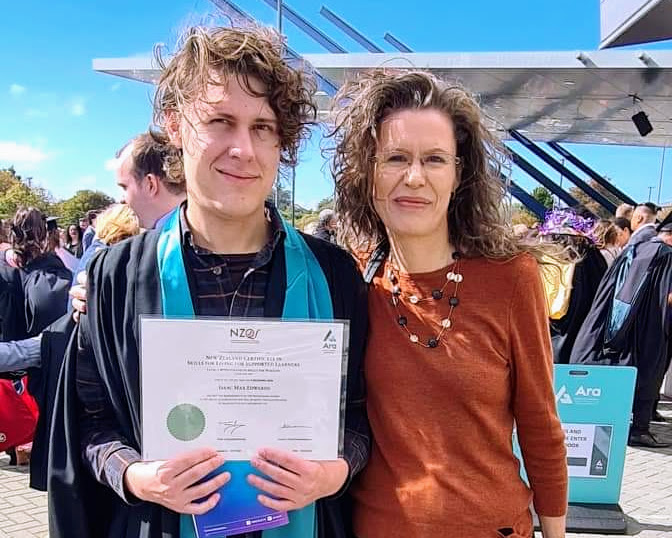
The Davis Autism Approach is the only program I’m aware of that manages to unlock the gifts and resources within people with autism.
I now know that Isaac is going to be OK in life … he will always be able to negotiate the world around him without getting anxious and confused, because within him he has the Davis tools and skills.
It is like a rock he can always come back to.
Juliana, parent, New Zealand
Interested in working with a facilitator?
Fill out the contact form below and a member of our team will be in touch with you.
Life is full of abstract concepts. These include change, time, and responsibility. For neurodivergent individuals, understanding these ideas can be challenging because they are often not concrete or visible. Many parents of neurodivergent children struggle to explain these ideas and adults with executive functioning difficulties face similar challenges. This blog post explores what it’s like for individuals when these concepts are fuzzy, and what it’s like when these concepts become clear. It also offers practical strategies to make them more accessible. Whether you’re a parent or an adult seeking clarity, this guide will help.
The struggle with abstract life concepts
Everyday life requires us to navigate abstract ideas. Neurotypical individuals often take this for granted. For neurodivergent individuals, it can feel overwhelming. For example, concepts like “consequence” or “time” are not tangible. They cannot be touched or seen. This makes them harder to grasp.
Consider this common scenario. You ask your child to put on their shoes. Fifteen minutes later, they are distracted by something else and their shoes are still not on! Or think about the adult who underestimates how long a task will take before they head out the door to an appointment, which they end up late for. These struggles stem from a lack of clarity about abstract concepts.
Why is this the case? Neurodivergent individuals are often visual and hands-on learners. They excel in creative and imaginative thinking and often spend much time in their delightful thought world, in which anything can happen. Not being present in the physical world for much of the time can impact their ability to accurately experience the passage of time, to gain a consistent understanding of true cause and effect, or to create an inherent sense of order, to name a few abstract, but fundamental concepts.
“I can’t believe how life-changing these concepts are. I use them all of the time in my life now – it is just so easy to take responsibility for things that had always seemed impossible before.”
Davis Concepts for Life Client, Spain, 26

Key life concepts and their challenges
1. Change
Change is an inherent part of existence—whether gradual or sudden, predictable or unexpected. For many neurodivergent individuals, change feels unsettling. This can lead to rigidity or anxiety. For example, a child might resist new routines. An adult might strive for perfection before taking action.
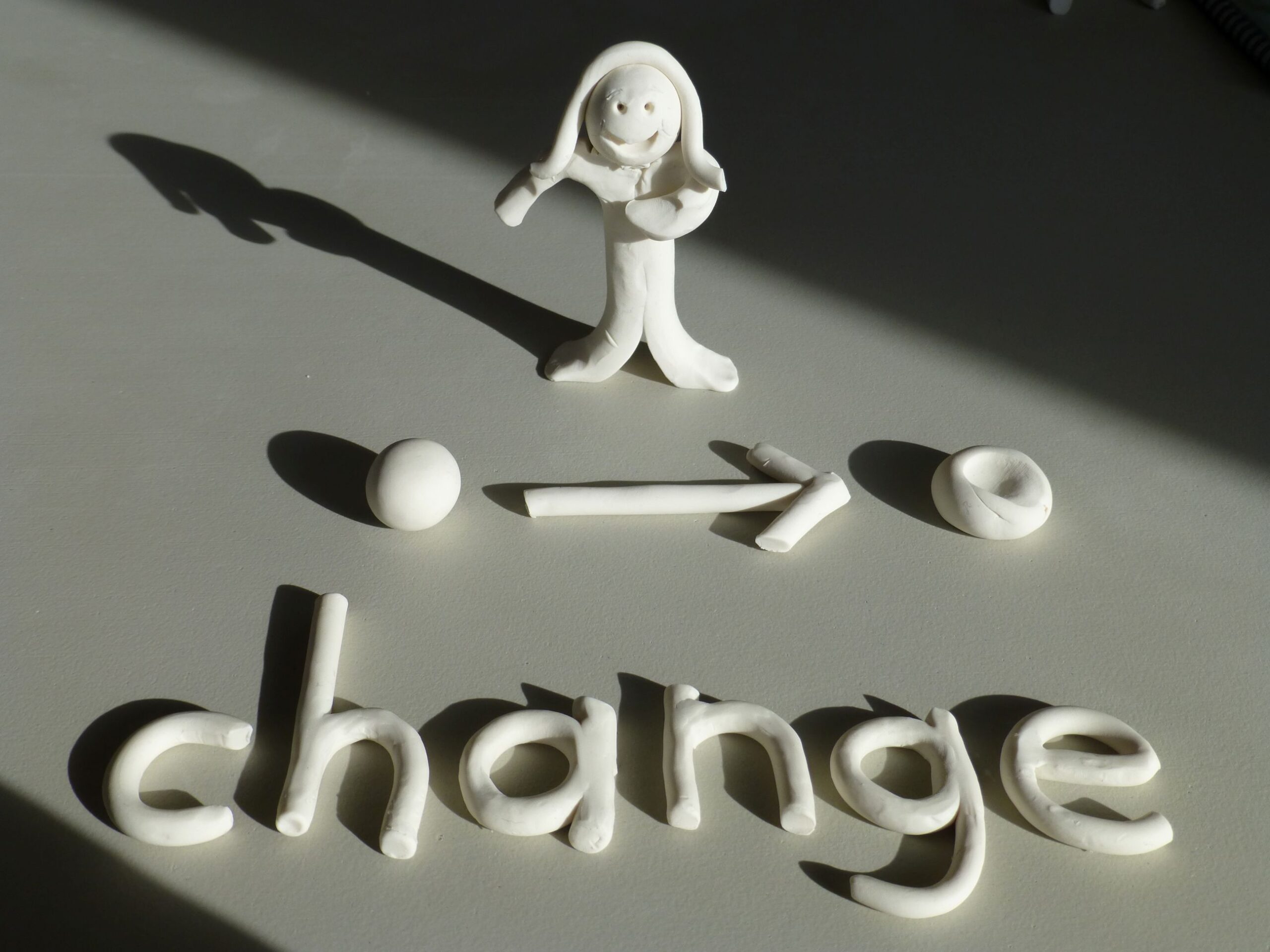
When the concept of change is unclear, individuals may:
- Avoid new experiences
- Become overwhelmed when things change
- Struggle with flexibility
- Experience perfectionism
Through our trademark clay modelling, we make this concept tangible. For example, we explore how a ball becomes flat when jumped on, how an empty bowl changes to contain cereal, or how ice transforms into water.
When we clarify this concept, we often see:
- Greater willingness to try new experiences
- Increased curiosity
- Better handling of routine changes
- Reduced anxiety
- Less rigid perfectionism
2. Consequence
Consequence means cause and effect. Something happens because of something else. Many neurodivergent individuals focus only on the end result. They miss the connection between actions and outcomes. This can lead to repeated negative behaviors or confusion when faced with discipline.
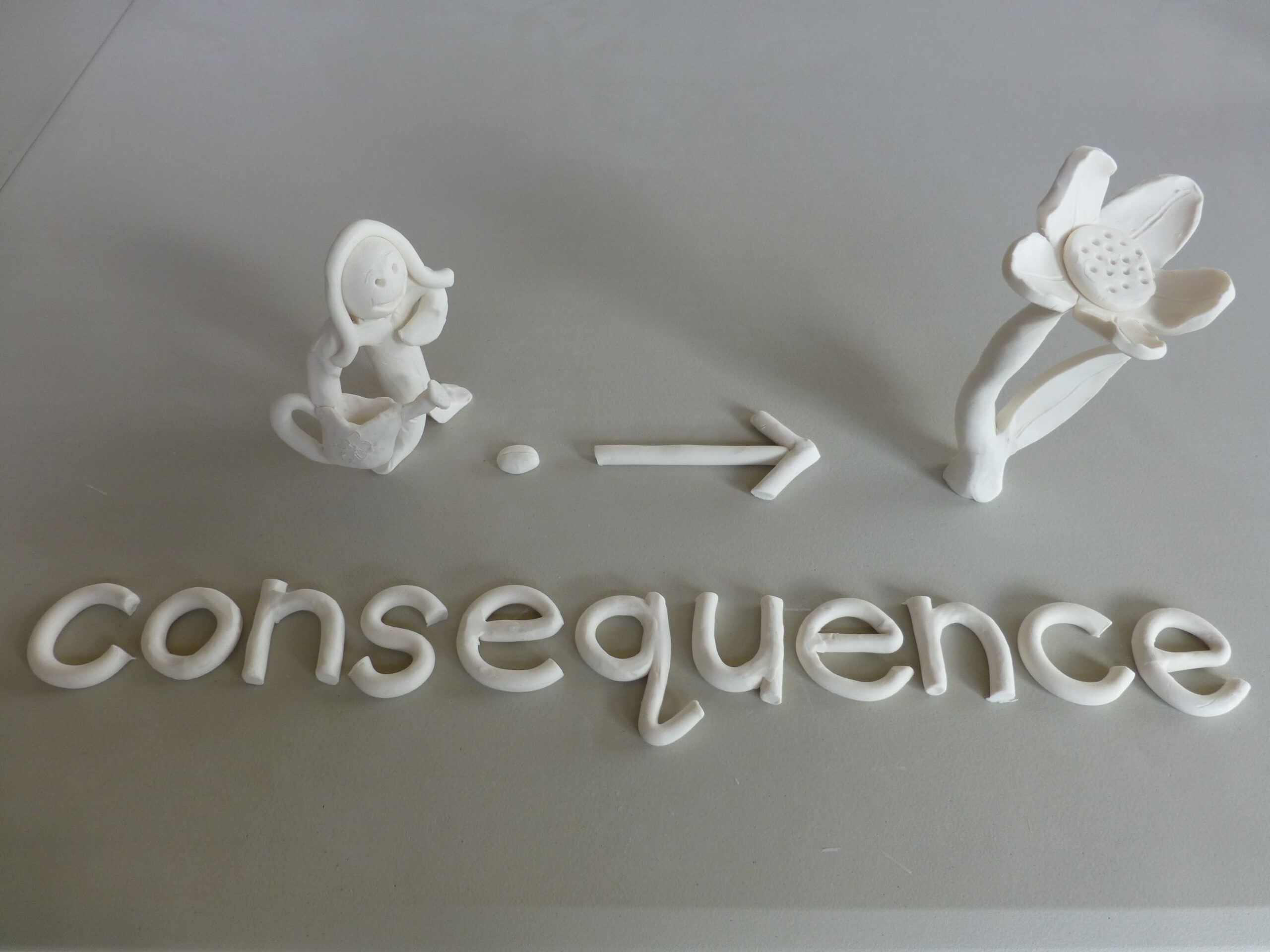
When consequence is unclear, individuals may:
- Repeat negative behaviors despite getting in trouble for them in the past
- Blame others
- Act impulsively
- Fail to predict outcomes
- Hurt others without meaning to
In Davis, we explore consequence as how we experience change around us. We can see the cause and effect of change – the consequence. The term consequence often has negative connotations, this method removes that negative stigma.
When consequence is clear, we see individuals:
- Changing behavior to create outcomes they want
- Taking responsibility for own actions
- Learning from their mistakes
- With improved relationships
- Taking more considered behaviors
- Being able to reason through a situation
- With an increased ability to predict outcomes
3. Time
Time is the measurement of change. For neurodivergent individuals, time can feel abstract and is often experienced in a distorted way. They may struggle to estimate how long tasks take. This leads to lateness, procrastination and disorganization.
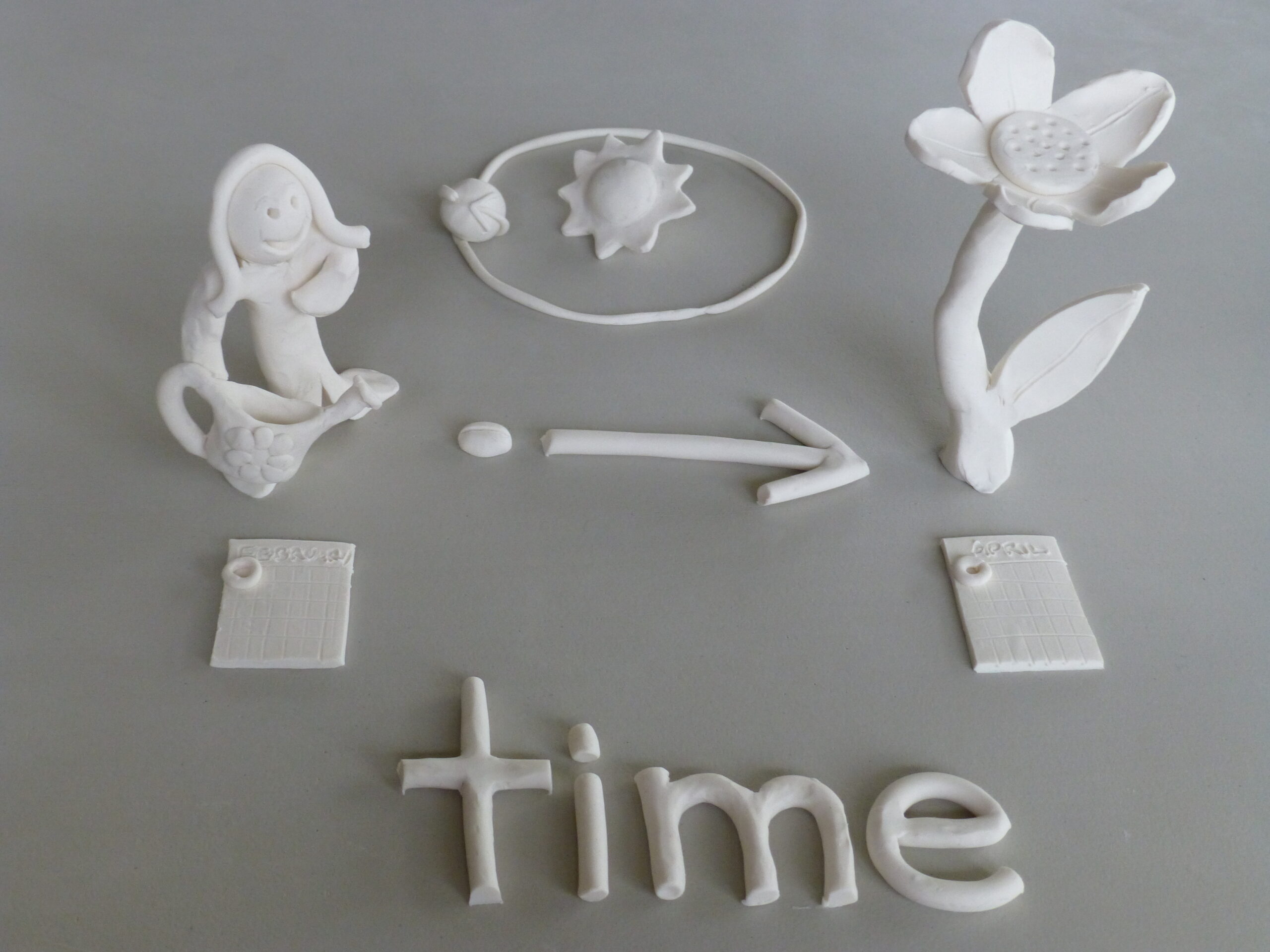
When time is unclear, individuals may:
- Constantly run late
- Leave tasks until the last minute
- Overcompensate by being excessively early
- Struggle to prioritize
In Davis, we make time concrete by understanding it as the measurement of change. When we cook pasta, we’re measuring how long it takes for it to change from hard to soft. When we sprout a seed, we’re measuring how long it takes to change from seed to sprout.
This practical understanding helps individuals:
- Plan more effectively
- Complete tasks on time
- Make better decisions about time management
- Reduce stress and confusion
4. Responsibility
Responsibility involves ability, motivation, and control. Responsibility does not happen if you have motivation, but do not have the ability to control (cause change). Similarly, you will not end up taking responsibility if motivation is lacking.
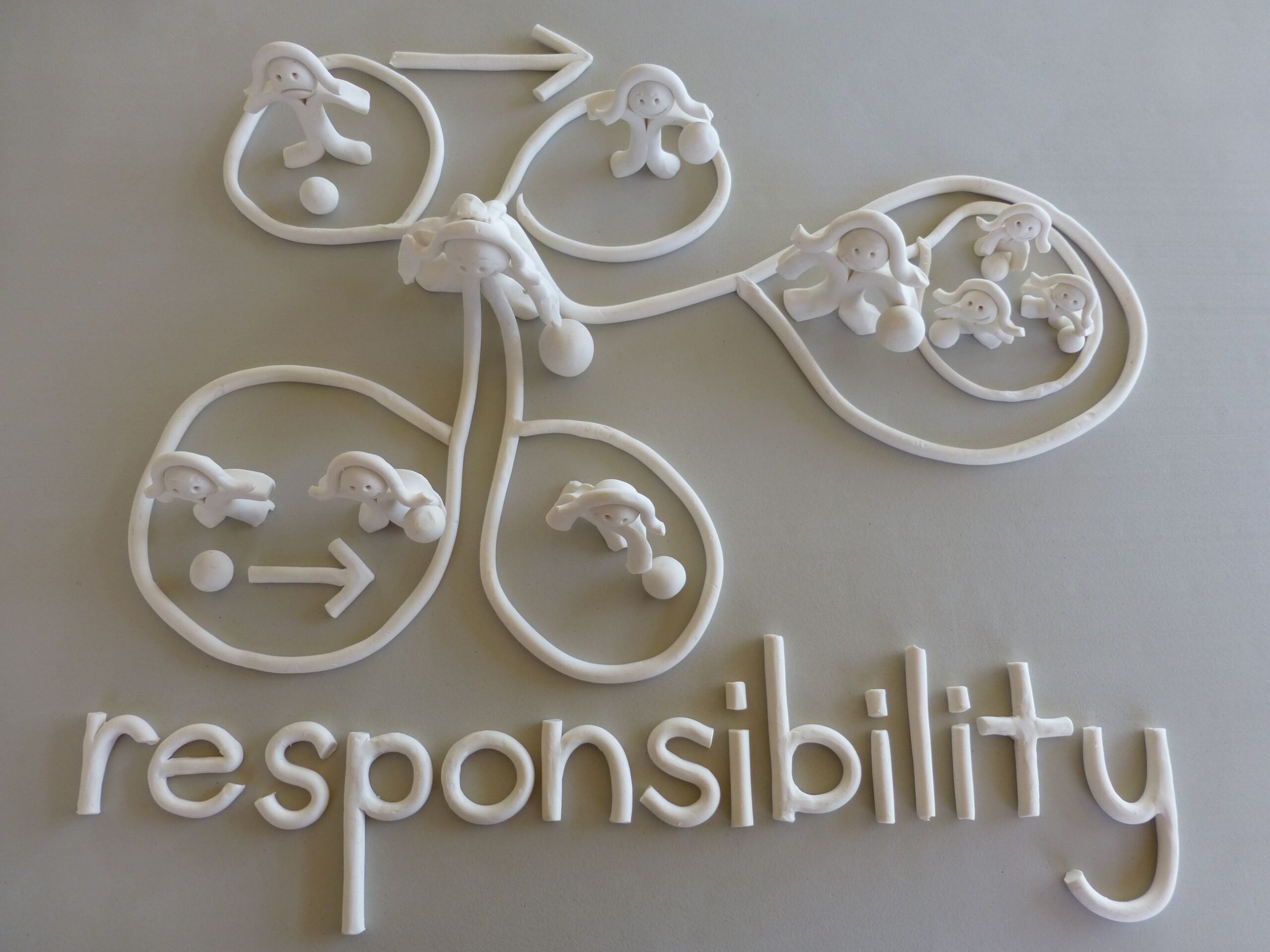
For neurodivergent individuals, responsibility can feel overwhelming. They may take on too much or avoid it altogether.
When responsibility is unclear, individuals may:
- Refuse certain tasks
- Blame others for mistakes
- Take on too much
- Struggle with boundaries
When responsibility is mastered and internalized, we see individuals who:
- Own appropriate responsibilities
- Set stronger boundaries
- Work well both independently and in groups
- Maintain healthier relationships
The Davis Method: Making abstract concepts concrete
The Davis Concepts for Life program and workshops offer tools to address these challenges. It uses hands-on techniques to clarify abstract ideas. As you can see with the examples above, clients use clay to model concepts like change or consequence. This approach is effective because it aligns with how neurodivergent individuals learn best: visual and hands-on. And because the creativity process and the learning process cannot be separated, the learning of these concepts becomes fully internalized and easily transferrable, rather than simply rote learned.
Key benefits of the Davis Method includes:
- Improved clarity of abstract concepts
- Greater willingness to try new experiences
- Enhanced ability to predict outcomes
- Increased confidence and independence
Next Steps
If you or your child struggles with life concepts, consider exploring the Davis Program. You can:
1. Attend a Davis Concepts for Life Workshop. This program is ideal for parents, teachers, and caregivers. After completing the workshop, you will be equipped to take an individual through the Concepts for Life Program
Find out more about our next workshop
2. Work one-on-one with a Licensed Davis Facilitator. They provide personalized guidance on your journey through the Davis Concepts for Life Program
Both options offer practical tools and strategies. These can lead to meaningful and lasting change.
For more information, book a free, no obligation discovery call. Take the first step toward clarity and empowerment today.
